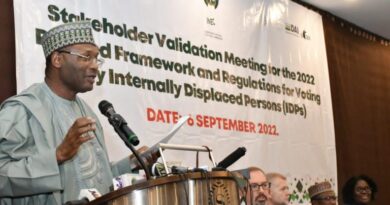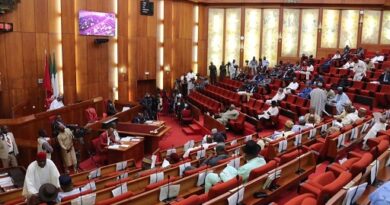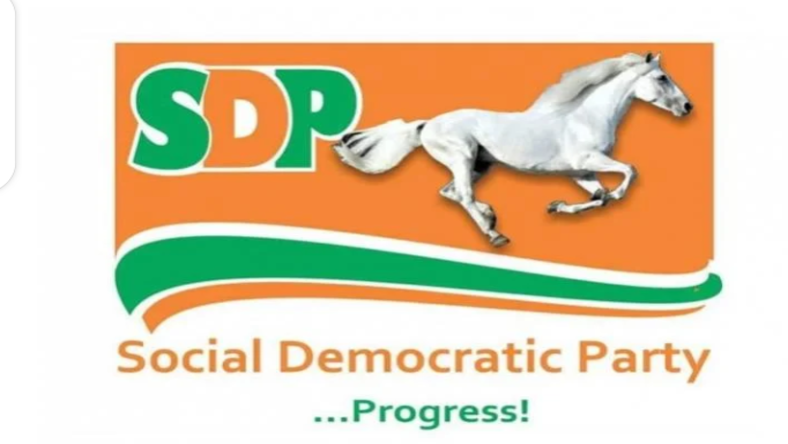CNG Calls for Referendum for Igbo Exit
The Coalition of Northern Groups (CNG) has said a referendum should be allowed for Igbos to peacefully separate from Nigeria and actualise the Biafra Republic they have been clamouring for.
The spokesperson of the group, Abdul-Azeez Suleiman stated this in a statement on Monday. He noted that ‘in the light of the frantic efforts being made by some sections of the leadership of the Igbo to disown the current violent agitations for a separate state of Biafra, we, the Coalition of Northern Groups (CNG) insist they should not be believed and only a referendum for Igbo exit from Nigeria can provide final guarantee for a peaceful Nigeria.’
CNG noted that Igbo’s has never been marginalised in the political affairs of Nigeria as they claimed, however, said the Igbo’s have not held the presidential position from 1979 to date.
The statement read:’We insist on a referendum to take place across the country to agree on an immediate and permanent exit of the Igbo from Nigeria.
‘With this, we wish to stress the need for Nigerians and Nigerian authorities and the International Community to consider the above-stated facts and urgently come to the reality that it is is no longer realistic for us to continue condoning and accommodating the ever resurgent unreasonable and unacceptable actions perpetrated against Nigerians collectively by the Igbo that involve taking up arms and declaring war two times previously.
‘And if the minority Igbo leaders persist in their current denial, we suggest that a referendum be organised, administered and supervised by the United Nations, the African Union and ECOWAS in the South East with only its indigenes taking part in the process to determine who holds the most influence between them and Kanu.
‘All Igbo must leave the territory of Nigeria and assemble in their designated enclave for the referendum during which period no further contacts should be experienced between them and the rest of Nigeria so as not to lead to any interference in the process.
‘The Federal Government of Nigeria shall also have no hand whatsoever in the process, and shall not be called upon to participate or render any assistance whatsoever from the beginning to the end of the referendum. Should there be any need, the participation of other regional, continental and international organisations can be requested to determine the way and manner such a referendum is to be held.
‘Contrary to the Igbo leaders’ claims of marginalization premised on falsehood and deceit, records of history show that the Igbo, having produced the first post-independence president of Nigeria, also had the first military Head of State in the person of Aguiyi Ironsi.
“Whereas even in most of the countries that we look up to as epitomes of democracy today, the vanquished in a civil war are always oppressed, marginalized and don’t enjoy the privileges of equal citizenship for decades afterwards, Nigeria was able to assimilate the Igbo nation back into the Nigerian entity after the civil war faster than most nations.
‘These were rare gestures of inclusiveness and tolerance exhibited and extended to the Igbo in all affairs of the Nigerian state both during the military regime and successive democratic governments despite their role in bringing about the first and only civil war ever fought in Nigeria. From 1979 to 1983 when civilians ruled Nigeria, the Vice President was Alex Ekwueme and the Speaker of the House of Representatives was Edwin Ume Ezeoke.
‘During the military rule of Ibrahim Babangida from 1985 to 1993 Ohanaeze Ndigbo was so pleased with him that he was honoured with Igbo traditional title of “Ogugua Ndigbo”, meaning “the Comforter of Igbo People”.
‘In the eight years of Obasanjo’s Presidency between 1999 and 200, there were not less than four Igbo Senate Presidents: Evan(s) Enwerem, Chuba Okadigbo, Adolphus Wabara and Anyim Pius Anyim. While Ngozi Okonjo-Iweala was Obasanjo’s
Minister of Finance, Charles Chukwuma Soludo was Governor of Central Bank and Ndi Okereke-Onyiuke was Director-General of Nigerian Security Exchange Commission.
‘Special Adviser to Obasanjo on Political Matters was Chief Chukwuemeka Ezeife. Igbo played other prominent roles that include holding the position of Minister of Defence in 2004 following the exit of Theophilus Danjuma and replacement by Thomas I. Aguiyi Ironsi. Throughout the six years of the government of Goodluck Jonathan, persons of Igbo ethnic group featured prominently in very strategic positions.
‘Thus up to 29 May 2015, the only position in Nigeria a person of the Igbo ethnic group did not occupy since the return of civilian rule in 1999 is just the Presidency. In the current administration, the Southeast has maintained a fair share of representation in the Federal Executive Council, Nigerian Civil Service and Government Ministries, Departments and Agencies (MDAs) including the Ministers of Petroleum, Labour and the Governor of Central Bank of Nigeria. Available data from the Nigerian Bureau of Statistics shows that the five states of the Southeast have more representation in the Nigerian Civil Service and MDAs than any other region of the country.
‘This essentially suggests that they have taken more than their fair share in terms of the standard framework laid down in Nigeria fair representation of all tribes in federal civil service.
‘Despite the more than a fair share of the economic and political advantage enjoyed by the Igbo, they continue to incite their youth to violence against other Nigerian ethnicities and to prepare them for war against the Nigerian state using distorted versions of the right to self-determination and false claims of marginalization.’




